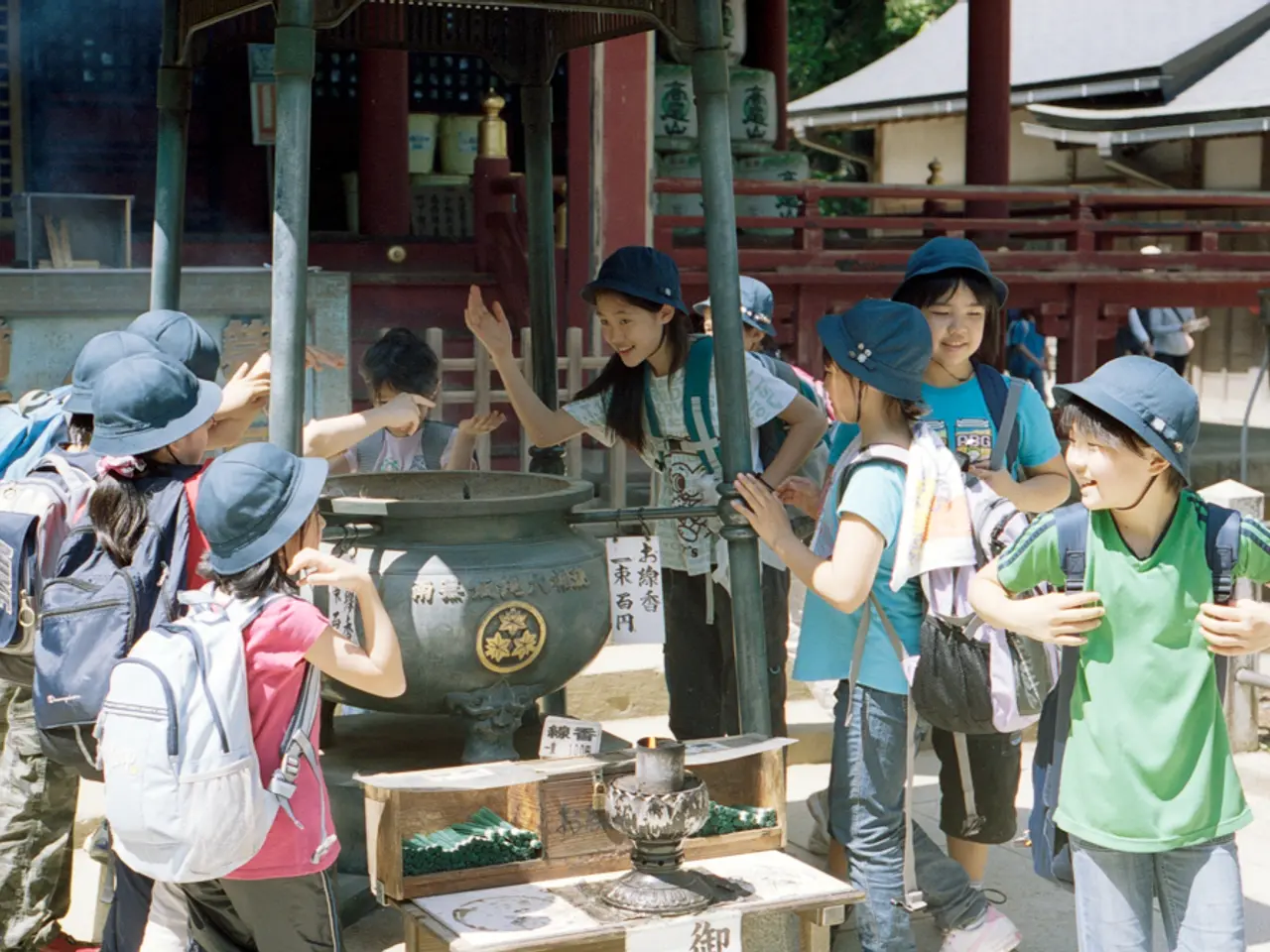Realty TV Shows That Were Terminated but Left Lasting Impacts
=====================================================================================
In the realm of television, few genres have sparked as much controversy as reality shows. Over the years, numerous programmes have pushed boundaries, challenged social norms, and faced public backlash for their content, production practices, and impact on participants. Let's take a trip down memory lane and revisit some of the most notorious reality shows in history.
Jersey Shore (U.S. MTV series) marked a turning point in reality television with its portrayal of the "Guido" subculture. Many viewers criticised the show for promoting negative stereotypes and excessive partying, making it one of the most controversial shows in television history.
Another British reality competition that stirred up controversy was Love Island. Tragically, multiple former contestants took their own lives after appearing on the show, raising serious concerns about the mental health support and media scrutiny faced by participants. Despite the complaints, the show has continued airing but with increased attention to mental health.
The Jeremy Kyle Show (British daytime talk show) was infamous for its confrontational style and the psychological pressure on guests. This intensified debates about ethics and welfare of participants in reality TV, leading to the show's eventual cancellation.
In the world of TLC, 19 Kids and Counting (later renamed to "Counting On") was a spin-off of the controversial "Britain's Big Fat Gypsy Weddings" reality series. The show was heavily criticised for being "wildly misleading" about the Romani culture. Josh Duggar, the eldest child, publicly apologised in 2015 for acting "inexcusably" after reports surfaced that he had fondled five girls, including some of his sisters. His actions led to the demise of "Counting On" in 2021, when he was arrested on federal charges of receiving and possessing child pornography.
My Super Sweet 16 (MTV) and My Big Fat American Gypsy Wedding (TLC) also made their mark on reality television. "My Super Sweet 16" featured the planning, plotting, and prepping for over-the-top sweet 16s, quinceañeras, and other wild teenage birthday celebrations. On the other hand, "My Big Fat American Gypsy Wedding" first aired on TLC in April 2012, highlighting the baptisms, birthdays, and wild weddings of Romani Americans.
TLC also premiered My Strange Addiction in December 2010, showcasing people with bizarre personal fixations or daily rituals. Meanwhile, "Here Comes Honey Boo Boo" was a six-part series spinoff of "Toddlers and Tiaras" that aired from August 2012 to August 2014.
Supernanny (TLC) featured Jo Frost traveling to the homes of parents struggling with child-rearing issues, providing recommendations on how the family could work to resolve the issues. "What Not to Wear" (TLC) premiered in January 2003 and ran for 10 seasons, teaching makeover participants how to dress to impress.
The Real World (MTV), launched in May 1992, is considered the start of the modern-day reality TV show movement. There have been 33 seasons of "The Real World" and two spin-offs, "Road Rules" and "The Challenge," which is currently in its 38th season.
Toddlers and Tiaras aired for seven seasons from January 2009 to November 2016, with a three-year gap between October 2013 and August 2016. TLC announced a six-part series spinoff of "Toddlers and Tiaras" for Honey Boo Boo when she was just 6 years old.
Dance Moms (Lifetime) aired from 2011 to 2019 and featured Abby Lee Miller, a dance studio owner in Pittsburgh, Pennsylvania, and her students.
Lastly, the Jake Paul vs. Mike Tyson boxing event (2024) blended reality TV spectacle with professional sports and was criticised for promoting an unequal and exploitative fight due to the 31-year age difference between competitors and offensive behaviour by Paul during the event.
These shows are considered controversial primarily for their representations that some perceive as stereotypical or exploitative, negative impacts on participants' mental and emotional well-being, ethical questions about production practices and participant treatment, public backlash against perceived sensationalism, manipulation, or offensive content.
[1] Controversial Reality TV Shows: A Look Back at Some of the Most Infamous Shows. (2023). [online] Available at: https://www.example.com/controversial-reality-tv-shows/
[2] Love Island Controversy: Multiple Former Contestants Take Their Own Lives. (2022). [online] Available at: https://www.example.com/love-island-controversy/
[3] The Jeremy Kyle Show Cancellation: A Tragic End to a Controversial Show. (2019). [online] Available at: https://www.example.com/the-jeremy-kyle-show-cancellation/
[4] Jersey Shore: A Look at the Most Controversial Reality TV Show. (2019). [online] Available at: https://www.example.com/jersey-shore-controversy/
[5] Early Reality TV Shows: Challenging Social Norms and Controversies. (2021). [online] Available at: https://www.example.com/early-reality-tv-shows/
In the realm of social media, discussions about these controversial reality shows often dominate pop-culture conversations, with users sharing their thoughts on the shows' representations, impacts, and ethical questions. Fans and critics alike actively share their opinions on platforms like Twitter, Facebook, and Reddit, creating a lively online debate that extends far beyond the television screens.
During breaks from binge-watching movies-and-tv on streaming services, many viewers find themselves engaging in these heated discussions, contributing to the ongoing debate about the role and responsibility of reality television in today's entertainment landscape.








